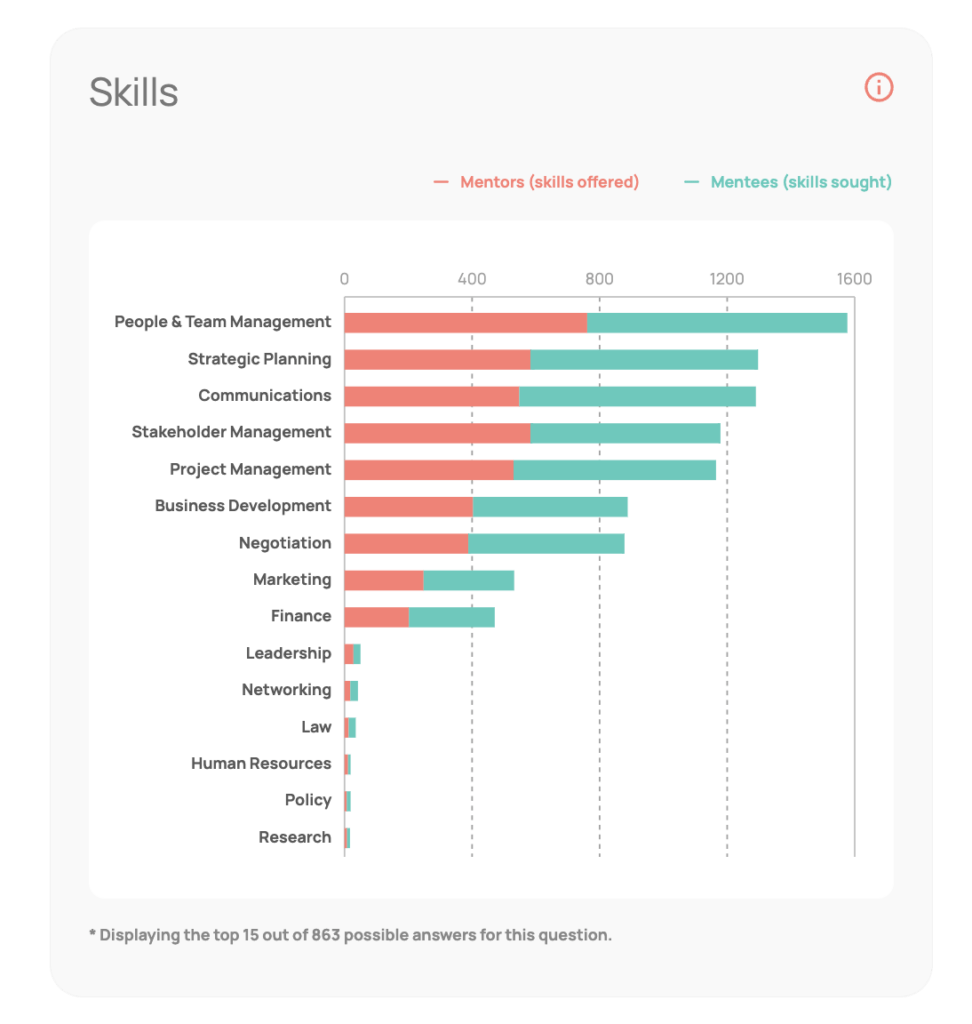Do you have big ambitions for your personal growth and professional development? Without a clear strategy and objectives, it can be tough to achieve those goals. Fortunately, individual development plans (IDPs) can help you to define a roadmap for your progress.
And when you combine IDPs with mentoring, you can accelerate your progress even more.
In this article, we’ll explore the benefits of combining individual development plans with mentoring, and take a closer look at the key elements that you need to include in your plan.
Understanding the Importance of Individual Development Plans
Before we dive into the specifics of individual development plans and mentoring, let’s take a step back and ask: why are these approaches so valuable?
Essentially, they help to give you a clear sense of direction and purpose within your personal and professional life. By setting clear goals, you can prioritize your efforts and make sure that you’re making progress in the right areas.
But why is this so important? Well, without clear goals and a plan to achieve them, it’s easy to get lost in the day-to-day routine of work and life. You may find yourself going through the motions, without any real sense of purpose or direction. This can lead to feelings of frustration, boredom, and even burnout.
On the other hand, when you have a clear plan in place, you know exactly what you’re working towards and why. This can help you stay motivated and focused, even when the going gets tough. You’ll be able to see the progress you’re making toward your goals, which can be incredibly rewarding and inspiring.
The Role of Individual Development Plans in Personal Growth
At the heart of an individual development plan is the idea of self-reflection. This means taking the time to assess your skills, strengths, and weaknesses, and identifying areas where you need to improve. But why is self-reflection so important?
Well, for one thing, it helps you gain a deeper understanding of yourself and your capabilities. By taking a step back and looking at yourself objectively, you can identify areas where you excel, as well as areas where you could use some work. This can be incredibly empowering, as it allows you to play to your strengths and work on your weaknesses.
Self-reflection can also help you identify areas where you may be holding yourself back. For example, you may have limiting beliefs or self-doubt that are preventing you from reaching your full potential. By recognizing these barriers, you can work to overcome them and achieve greater success.
Once you’ve done this self-reflection, you can design a plan of action that’s tailored to your unique needs and objectives. With a defined strategy in place, you’ll be able to track your progress and measure your success over time. And by continually assessing your performance and refining your approach, you can stay focused and motivated on your path to self-improvement.
Learn more from mentoring expert, Georgia Pascoe as she explores Why Formalised Reflection And Goal Setting Is Important — Especially Now.
Key Elements of an Effective Individual Development Plan
So, what are the key elements that you need to include in your individual development plan?
- Clear objectives: You need to set out specific, measurable targets that you want to achieve. These should be aligned with your personal and professional goals, and should be challenging but achievable. There’s a reason SMART goals are all the rage.
- Timelines: You should establish a timeline for your goals, so that you can track your progress over time and stay focused on your objectives. This will help you stay accountable and motivated.
- Performance indicators: You should define how you’ll measure your success, and what criteria you’ll use to assess your progress. This might include metrics like revenue, customer satisfaction, or personal growth milestones.
- Action steps: You need to plan out the specific steps you’ll take to achieve your goals, and establish deadlines and goals for each one. This will help you break down larger goals into smaller, more manageable tasks.
- Resources: You should consider what resources you’ll need to achieve your goals, including training, mentorship, and support. This might involve seeking out a mentor, taking courses or workshops, or joining a professional organization.
By including these key elements in your individual development plan, you’ll be setting yourself up for success. You’ll have a clear roadmap to follow, and will be able to track your progress and adjust your approach as needed–having a mentor can assist in refining this roadmap even further. With time and effort, you’ll be able to achieve your goals and reach new heights in your personal and professional life.

The Power of Mentoring in Personal Development
Now that we’ve explored the key elements of an effective individual development plan, let’s shift our focus to mentoring. Essentially, mentoring is a process of learning from those who have more experience and expertise in areas where you want to improve. By tapping into the insights and knowledge of others, you can accelerate your progress and learn valuable new skills and techniques.
How Mentoring Contributes to Individual Development
Mentoring can be hugely beneficial for your personal and professional growth. Here are just a few ways that it can help:
- Access to expertise: Your mentor can give you access to specialized knowledge, experience, and perspectives that would be hard to acquire on your own.
- Feedback and support: You’ll receive quality feedback and guidance from someone who has your best interests at heart, helping you to stay focused and motivated.
- Networking opportunities: Your mentor can help you to build valuable networks and connections that can advance your career. In fact, mentors who build and extend their networks succeed the most.
- Personal growth: When you work with a mentor, you’ll often challenge your own assumptions and push beyond your comfort zone, helping you to grow more as a person.
Choosing the Right Mentor for Your Development Plan
Of course, not all mentors are created equal. To get the most out of your mentorship experience, you need to choose the right person for your needs. Consider looking for someone who:
- Has experience in areas where you need to improve
- Shares your values and vision for success
- Is someone you respect and trust
- Can challenge you constructively to achieve your goals
Program Coordinators, you can easily match (manually or by algorithm) based on a variety of criteria, such as skills and/or goals. Your participant infographics can help you keep your program balanced, in terms of the number of participants wanting to learn a new skill and the number of mentors that offer it.
Integrating Mentoring into Individual Development Plans
So, now that we’ve explored the key elements of individual development plans and the benefits of mentoring, let’s look at how you can actually integrate these two approaches together.
Steps to Incorporate Mentoring in Your Development Plan
Here are some steps to consider when developing a mentoring component within your individual development plan:
- Assess your needs: Identify what areas you need support in, and what kind of mentorship would be most useful to you.
- Find a mentor: Use your networks to identify potential mentors who could help you achieve your goals. If your organization uses Mentorloop, simply request a match or search for your ideal mentor.
- Establish your objectives: Work with your mentor to define clear goals and objectives for your mentorship program.
- Develop an action plan: Create a roadmap for how you’ll work together, establish timelines and deadlines, and define performance indicators.
- Measure your success: Continually assess your progress and measure your success, using performance indicators and feedback from your mentor.
Measuring the Success of Individual Development Plans with Mentoring
Of course, simply creating an individual development plan and engaging in mentorship is not enough on its own. You need to be able to measure your progress and determine whether you’re successfully achieving your goals.
Key Performance Indicators for Development Plan Success
Here are some key performance indicators to consider when measuring the success of your development plan:
- Achievement of objectives: Are you meeting your targets and achieving your stated objectives?
- Skills growth: Are you developing new skills and competencies that help you to perform better in your role?
- Leadership development: Are you making progress toward developing your leadership abilities?
- Career advancement: Are you advancing within your organization or pursuing new opportunities that align with your long-term goals?
Tools and Techniques for Monitoring Progress
To effectively monitor your progress, you might consider using some of the following tools and techniques:
- Check-ins: Regular meetings with your mentor to assess performance and discuss challenges and opportunities.
- Goal tracking: Using a tool like a spreadsheet or task management software to track progress towards your objectives.
- Feedback surveys: Soliciting feedback from others, such as colleagues or customers, to gauge your performance.
- Performance appraisals: Regular assessments of your performance within your role, to help you identify areas for improvement.
Overcoming Challenges in Implementing Individual Development Plans with Mentoring
While individual development plans with mentoring can be hugely beneficial, they’re not without their challenges. Here are some common obstacles that you might face:
Common Obstacles and How to Overcome Them
- Time constraints: It can be tough to find time for self-reflection and mentorship when you’re busy with other commitments. Consider scheduling regular meetings and carving out dedicated time in your calendar for these activities. The best mentoring relationships are intentional with their time.
- Resistance to change: It can be hard to break out of old habits and try new approaches to personal and professional development. Consider setting small, manageable goals to help build momentum and overcome feelings of resistance.
- Lack of accountability: Without some form of accountability, it can be tough to stay focused and motivated on your goals. Consider working with a mentor or accountability partner who can help keep you on track.
Ensuring Continuous Improvement and Adaptability in Your Plan
Ultimately, the key to success with individual development plans and mentoring is to stay flexible and adaptable. As you encounter challenges, setbacks, and new opportunities, be willing to adjust your approach and revise your goals. And always keep in mind that personal and professional growth is a continual process, requiring ongoing reflection, self-awareness, and a willingness to learn and experiment.





